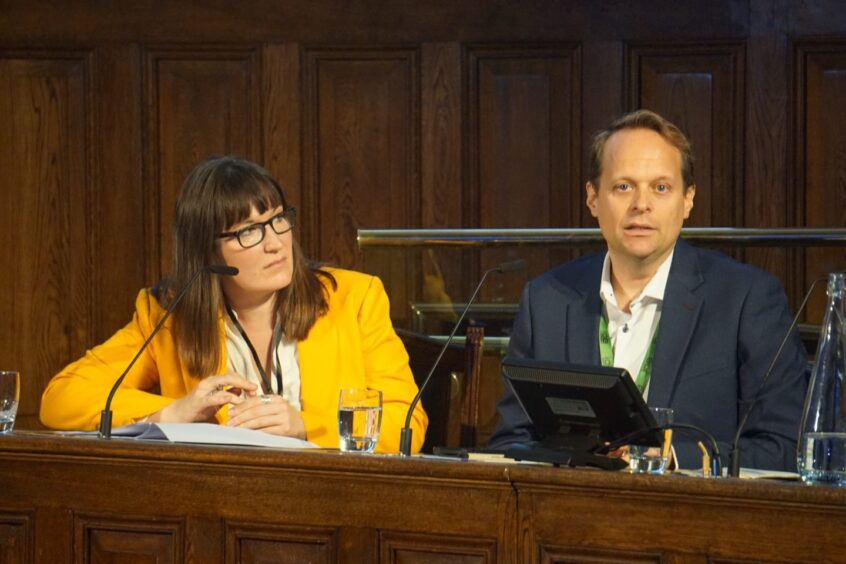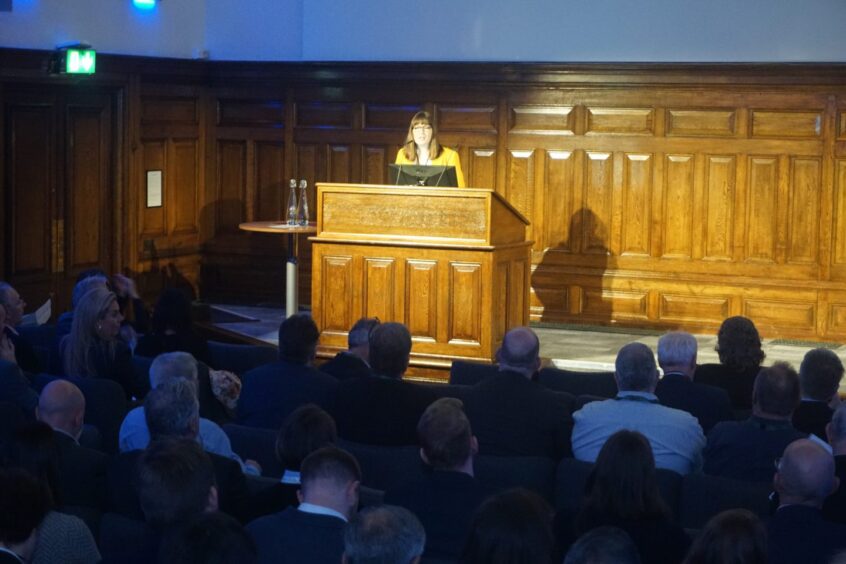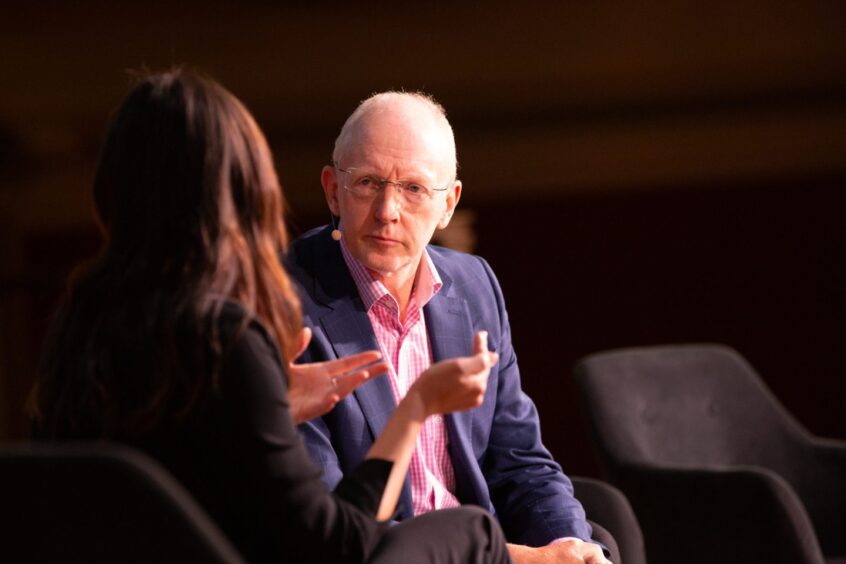
The UK government’s 2030 clean power targets will take a “Herculean” effort from the supply chain, according to Yselkla Farmer, chief executive of energy infrastructure trade association Beama.
Earlier this year, the government pledged to decarbonise the country’s power system and electrical grid by the end of the decade, on the path to reaching ‘net zero’ carbon neutrality by 2050.
In November, the National Electricity System Operator (NESO) concluded that the government’s goals under the clean power mission were “achievable” in a report commissioned by Ed Miliband, Secretary of State for Energy Security and Net Zero.
For the first time, an independent trade association has spoken out about the scale of the challenges that lie ahead on the road to net zero.
“I think there’s a lot of work now already happening to discuss how we can actually deliver it,” Farmer told Energy Voice at the sidelines of Beama’s annual conference on Wednesday.
She warned that while the government’s clean power mission is “possible”, it remains “really, really ambitious”, and rather than an overhaul of subsidies, delivering 2030 targets will require “standardising at a programme level” of electrical system components such as transformers and transistors.
Ten-fold increase
The trade association for energy infrastructure and systems estimates that reaching the decarbonisation goals will require its members to scale up manufacturing capacity ten-fold.
“From a supply-chain perspective, you need some really radical changes in how we’re procuring and designing and standardising some of the projects that are going to need to be connected by 2030,” Farmer said.
“I do think it’s achievable. It’s a Herculean effort, but they’re definitely putting in the structures in place, for us as an industry… to work together.”
The trade association represents the energy infrastructure and power systems sector and while it sits on delivery forums with both the energy system operator and Michael Shanks, who is a UK minister for energy, it acts on behalf of its members in the supply chain.
Farmer said there are things that can be done within the supply chain to ensure that its members, such as electrical engineering companies ABB and Babcock International, can scale up and help the country decarbonise the grid.
“Our members are scaling up, just probably not fast enough right now,” she said. “I think there’s a lot of work now already happening to discuss how we can actually deliver.”
She said “radical changes” are needed in how the UK procures, designs and standardises clean energy projects by 2030.
Supply chain valued at £14bn
The trade association publishes a market pulse indicator to track capacity in the electrical products supply chain, which contributes more than £14bn to the UK economy annually, and to assess what investment intentions are on behalf of its members.
The supply chain for electrical products exports £5bn of goods each year and is strongly placed to capture business in the £1tn global market for low-carbon technologies.
The trade body’s indicator registered a “modest uptick” in the second quarter of 2024.
However, according to the data, year-ahead investment intentions “stalled” in the third quarter, which the trade association said was likely the result of “increased uncertainty” following the general election and run-up to the autumn Budget.
That report identified several areas where the UK is falling behind, revealing that network investment is “suffering” from a lack of demand, that heat electrification is “too low” due to a narrow technology focus, and that the smart metering rollout is “incomplete”.
Electric vehicle infrastructure is also “faltering” in the UK and behind where it needs to be, Beama said.
The trade association called for Ofgem and the UK government to invest in networks, decouple electricity and gas wholesale prices and overhaul subsidies for heat technologies, which currently offer grants for heat pumps that suppliers have warned remain prohibitively expensive.
It also called for an end to the planning barriers to electric vehicle infrastructure, and for companies to address “range anxiety” and government to make electric cars more accessible and affordable. Meanwhile, energy suppliers should be mandated to complete smart meter rollouts, Beama said.
Farmer explained that despite the barriers, overall planned investments “are up”, among the industry association’s members, which she described as “positive”, adding that the clean power mission 2030 presents a big “opportunity” for the sector.
Ultimately, the trade association’s view is that the industrial strategy and the clean power goals spell “growth” for its members, according to Farmer.
“It’s looking good,” she said. “But… for some of our members, this is ten times the scale of what they supply to the UK market now.”
A concrete industrial strategy “could be really helpful” in leveraging shorter-term support to build up capacity in the supply chain, according to Farmer.
Electricity network commissioner Nick Winser, speaking at the event this week, warned against conflating the issue of needing capacity in the supply chain quickly and encouraging longer-term inward-bound investment in the UK.
“Winser mentioned in his keynote this morning that we are at risk of conflating the two issues where you need capacity in a supply chain really fast, and you need long-term, UK-inward investment,” Farmer said.
Trading relationships with other countries both inside and outside the European Union are going to be “really key” in how the market develops, while the biggest export market for the UK remains the EU, Farmer said.
“In any rapidly growing market, there are lots of challenges,” said Farmer, adding that Beama’s members sell into competitive markets abroad. “Global competition is quite tough.”
The up to £8bn advanced procurement mechanism is one way that transmission network operators are seeking to procure capacity before projects receive final investment decisions, but it has its limitations.
Farmer said the procurement mechanism “will help get some programmes off the ground, and help secure a bit of capacity in the supply chain, now. But what you need is firm orders to get very more factories built obviously.”
The trade association is actively involved in the delivery forum for UK electricity networks, exploring ways to “speed up delivery in the supply chain”, said Farmer.

 © Supplied by Beama
© Supplied by Beama © Supplied by Aurora Energy Resear
© Supplied by Aurora Energy Resear